« Find Destination
| Background
| About Us
| Contact Us »
« Time Line
| Symbols | Credits »
«Black Cultural Centre | Nova Scotia Tourism »
Historic Destination (5)
Halifax (& Africville)
![]() Permanently settled in 1749 by the British, Halifax is the largest city in the Atlantic Provinces and is one of the key ports in eastern North America. On the penisula, Halifax Central, known as Halifax's northend, used to be the Old North Suburbs. This was the core of the city, and it was here where the concentration of people of African descent would reside. For close to 200 years and counting, land and homes owned by Blacks would be found in the area. With it's unique identity Halifax's North End is more like a village within a city where people will smile at strangers and gladly strike up a conversation with others going about their day. Shops are small and the proprietors will probably be one of the people serving you. When you are out and about in the North end, stop into Starlite Cuisine on Cornwallis street and savour the flavour of West Indian dishes. Or go south on Gottingen street and sample the aromatic dishes of Africa at the Highlife Café.
Permanently settled in 1749 by the British, Halifax is the largest city in the Atlantic Provinces and is one of the key ports in eastern North America. On the penisula, Halifax Central, known as Halifax's northend, used to be the Old North Suburbs. This was the core of the city, and it was here where the concentration of people of African descent would reside. For close to 200 years and counting, land and homes owned by Blacks would be found in the area. With it's unique identity Halifax's North End is more like a village within a city where people will smile at strangers and gladly strike up a conversation with others going about their day. Shops are small and the proprietors will probably be one of the people serving you. When you are out and about in the North end, stop into Starlite Cuisine on Cornwallis street and savour the flavour of West Indian dishes. Or go south on Gottingen street and sample the aromatic dishes of Africa at the Highlife Café.
Points of Interest
Africville (now known as Seaview Memorial Park, a National Historic Site )
North end of Barrington Street (take ramp to McKay bridge and make right exit)
Africville, a village within a city was home to about 400 African-Canadians whose forebearers settled in Nova Scotia following the War of 1812. These settlers, Africans fleeing enslavement in the United States, had initially located in the outskirts of Halifax and Dartmouth. Between 1835-1840 many relocated and formed "Africville", then known as the Campbell Road Settlement. The community was enviably located on the shoreline of Bedford Basin. From 1964 to 1970, the residents of this 'village' were relocated to city-provided tenements scattered throughout northend Halifax. The community was separated.
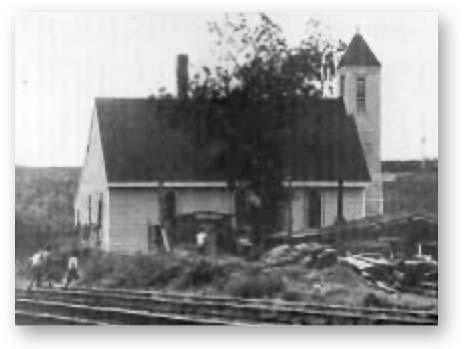
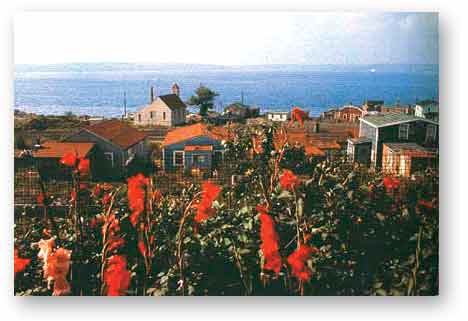
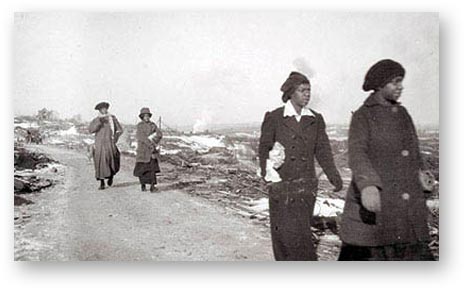
The strength of communal bonding that had allowed them to survive in the face of adversity was broken. The relocation has been the cause of ongoing national and international debate. Residents and their descendants are seeking apologies and reparation for what they see as an act of a violation of their human rights and dignity. In July 2002, through the ongoing efforts of the Africville Genealogical Society, Africville was declared a national historic site. Additionally, the UN recommends reparations for Africville residents. Their struggle continues.
If you come to Halifax seeking Africville today, you must ask for Seaview Park, as that is how it was renamed. There are no physical reminders that a bustling community once sat on the site. All that remains of Africville, in the physical sense is a monument of dedication. But if you sit and have a picnic and just listen you can hear the sounds of that past. Once a year, in the last week of July, descendants and friends get together for a week long gathering celebrating the spirit of the community.
Melville Island
- was
located on the Northwest Arm
The complex on Melville Island was a holding place for enemy prisoners during various periods throughout its existence. In 1815, the prison complex served as a quarantine station for 100 - 200 Refugees of War of 1812. These formerly enslaved persons eventually settled in the Halifax-Dartmouth area. Today the property is the home for the Armdale Yacht Club.
The interior of the prison is closed to the public.
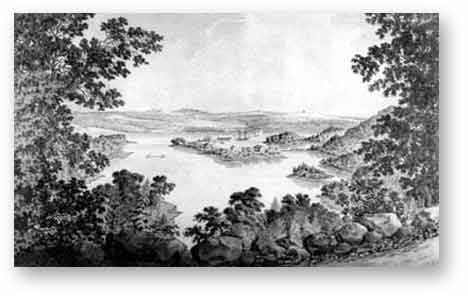
Cornwallis Street United Baptist Church
5457 Cornwallis St, Halifax
Reverend Richard Preston, was instrumental in the formation and furthering of the Black Baptist tradition of the province from 1816 to 1861. Preston was ordained on the 19th May 1832 and served for 30 years as pastor of Cornwallis Street Baptist Church, the 'Motherchurch' of all churches of the Black Baptist persuasion.
Museums, Archives, Memorial Sites
Africville (Seaview Memorial Park, a National Historic Site) Halifax City
North End - off of Barrington Street as you approach the McKay Bridge
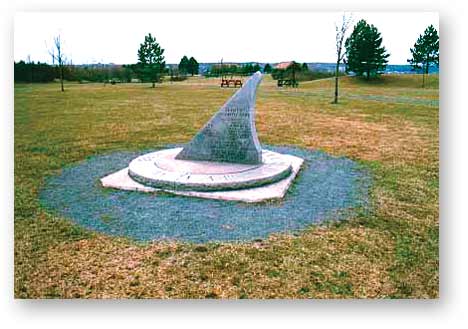
Memorial cairn erected in honour of early settlers (1840s).
Picnic area. Limited facilities and Playground
Access: open to public
Nova Scotia Archives and Records Management
6016 University Avenue, Halifax
The Provincial Archives are a source of wealth for historians and genealogists alike. If you think you have roots in Nova Scotia or you have an interest in the history of the area, here is the place you should come. Remember to bring two pieces of identification, as you will be issued a pass that will allow you access to the records. You can take the pass with you, and when you are back in town again you won't have to re-register.
Open: Monday - Friday 8:30 am-4:30 pm; Sat. 8:30 am-5:00 pm; Sun. 1:00 pm-5:00 pm
Tel.: 1.902.424.6060
Army Museum
Halifax Citadel National Historic Site Entrance by vehicle on Sackville Street
Housed in the Cavalier Building of the Citadel is the Military Museum with exhibits depicting Nova Scotian military history including edged weapons and firearms, a display dedicated to the No. 2 Construction Battalion, Canada's only all-Black Battalion and the all-Black 104th Pioneer Regiment.
Open: May - October 31; Nov 11 (Remembrance Day)
Tel.: 1.902.422-5979
 Order free Destination Liberty travel brochure
Order free Destination Liberty travel brochure
Key: (#) = number on Destination Liberty map